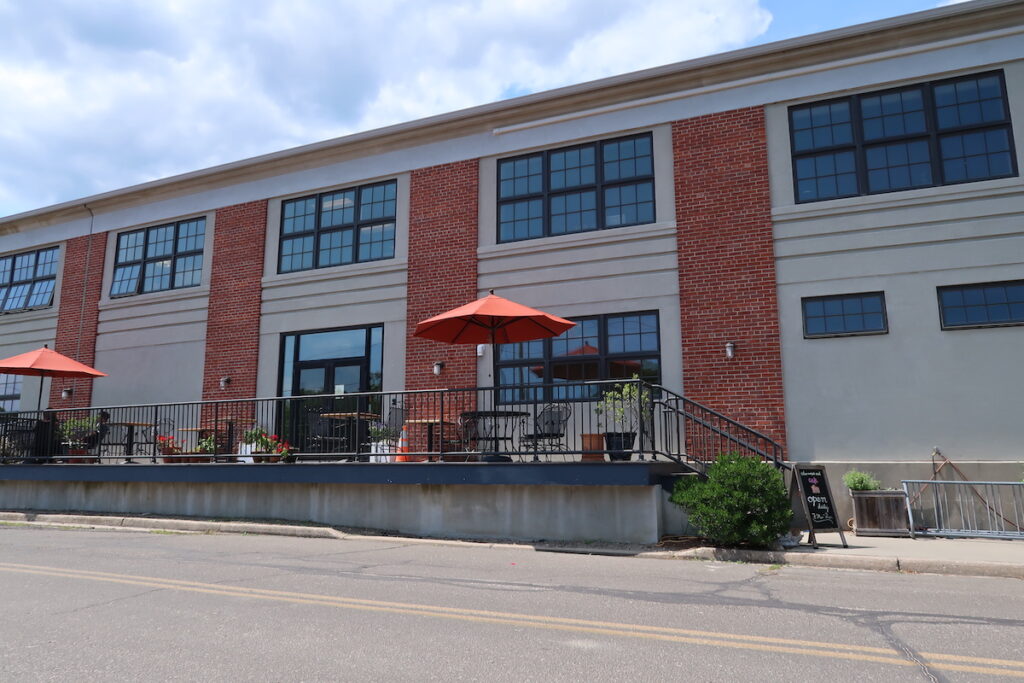Sea Tow pushes for Coast Guard change on 911 calls

As technology evolves, so does the way distressed boaters seek help.
In lieu of traditional VHF radios, boaters frequently turn to dialing 911 when an emergency arises, especially when close to shore where a cell signal is still strong. That has, at times, led to poor communication between different departments coordinating a rescue and delayed notification to the U.S. Coast Guard, according to Joe Frohnhoefer III, CEO of Sea Tow, based in Southold.
Mr. Frohnhoefer has made the issue a point of emphasis and has worked with Congressman Lee Zeldin to come up with a clearer policy for how maritime emergencies are handled.
The Frank Libiondo Coast Guard Authorization Act, signed by President Trump in December, includes an amendment that calls on the Commandant of the Coast Guard to develop a national policy for maritime 911 calls.
“It’s always been my stance that the Coast Guard occupies the field of maritime search and rescue,” Mr. Frohnhoefer said. “From there we all fall under them.”
Search and rescue summary statistics classify lives lost in incidents after the Coast Guard had been notified and before they were notified. The statistics show a growing disparity in incidents were lives were lost prior to Coast Guard notification. Overall numbers for lives lost are trending down, due in large part to improvements in boater technology, such as GPS and better boat engines, and more awareness of dangers like boating while intoxicated.
“There’s no standard system or procedure in place to get a phone call to 911 in the maritime domain to the Coast Guard,” Mr. Frohnhoefer said.
A spokesperson for Mr. Zeldin called the amendment “a big win for local boaters.”
A spokesperson for the Coast Guard provided a statement and said an official would not be available for an interview.
“The Coast Guard is aware of the requirement, and we are currently working with industry and state/local partners to develop the policy as directed in the CGAA of 2018,” the statement said.
Mr. Frohnhoefer said the Coast Guard’s responsibilities have grown since 9/11 as homeland security has become a more critical need. In most cases where a kayaker becomes stranded or another similar situation, it will be local police or fire crews that are best equipped to promptly handle a rescue. The idea, as Mr. Frohnhoefer described, is for the Coast Guard to lead the operation and coordinate all the different departments responding. The Coast Guard can also easily transmit information to boaters, who may be able to get to a scene fastest to help someone in the water.
The Coast Guard’s goal, he said, is to not have to deploy its resources, so they can be ready for more in-depth search and rescue operations and homeland security missions.
Mr. Frohnhoefer pointed to a Suffolk Times story from 2014 where a Selden man operating a 26-foot fiberglass sailboat called 911 around 1 p.m. to say his boat was taking on water in Long Island Sound nearing Wading River Beach. Multiple police and fire crews were dispatched for the rescue. The story notes that at 3:30 p.m., the Coast Guard said it was “in the process of conducting a search.”
It’s unclear how long it took for the Coast Guard to become involved in the rescue attempt.
“If my boat sinks and I’m in the water, and the only thing I can do is make a 911 phone call, I do not want one fireman or police officer to come in a boat to look for me,” Mr. Frohnhoefer said. “I want the Coast Guard to know, I want the Coast Guard to put out an urgent marine information broadcast and I want every boater to know I’m out there. Every resource.”
Southold Town Police Chief Martin Flatley said when a distress call comes into the dispatch center, the department’s marine units and local fire department marine units end up handling the majority of calls without Coast Guard assistance.
“We do notify the USCG center in New Haven as directed when we receive these calls,” he said. “If there is a missing boater call requiring a search or fatal boat crash or other severe incidents, the USCG will respond to coordinate the response with all marine units, as per our operating procedures and training.”
A problem he noted is 911 calls made from the water can be misdirected by cell towers to other municipalities or even states. For example, when a boat was sinking off Orient Point last year, the first 911 call was received by Southold’s dispatch center. However, follow-up calls were routed to Connecticut. Critical information got funneled through two Connecticut police departments, the Coast Guard, Suffolk County Fire Rescue in Yaphank, and finally back to Southold.
“I agree with Sea Tow that the USCG should have control of search and rescue operations, and they do and we have been trained on that discipline,” Chief Flatley said. “It’s the other calls, that are the majority … that we deal with the most that are impossible for the USCG to respond to on a regular basis in a timely fashion.”
Photo caption: Suffolk County Police Marine boats search for a missing kayaker in Long Island Sound near Wading River last summer.









